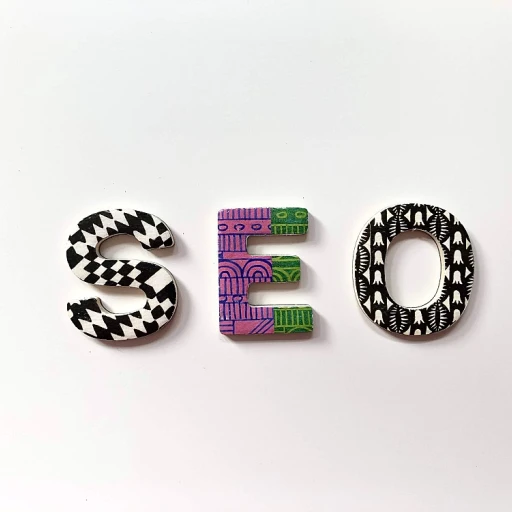Understanding the Role of AI in SEO
The Evolution of Search Engine Optimization
To truly appreciate the transformative role of artificial intelligence (AI) in search engine optimization (SEO), it's essential to explore how SEO practices have evolved over time. Traditional SEO methods primarily focused on keyword stuffing and link-building strategies. While these techniques were effective in the past, they no longer meet the sophisticated needs of modern search engines and users.
AI technology marks a pivotal shift from generic practices towards a more tailored approach. Its ability to analyze vast amounts of data quickly allows marketers to understand user intent better and customize their SEO strategies to suit individual needs. This personalization is pivotal in today's digital landscape, where user engagement and relevance have become paramount.
AI: A Game-Changer for Search Engines
The primary goal of any search engine is to deliver the most relevant results to its users. AI accelerates this process by improving data retrieval and analysis, aligning the quality of search engine results with user expectations. For instance, AI-powered algorithms can adapt and learn from user behavior, providing more personalized search experiences over time. This not only enhances user satisfaction but also builds trust in search engine results, which is critical for businesses aiming to improve their online presence.
AI also empowers businesses to identify trends and patterns that were previously unseen. By understanding these insights, companies can tailor their content, products, and services, becoming more attuned to the demands of their target audience. Moreover, AI's role in SEO extends beyond keyword strategies; it also impacts user experience and technical aspects, which we'll explore further in subsequent sections.
Embracing AI-Driven Transformation
For businesses ready to embrace this AI-driven transformation, the journey begins with acknowledging the need for deeper SEO personalization. This includes refining approaches based on user intent and ensuring content is specifically tailored to meet user needs.
To delve further into the transformative power of AI in personalizing SEO strategies and refining user intent, explore how
AI personalization refines SEO for user intent. Understanding this synergy between AI and SEO is crucial for businesses aiming to remain competitive and relevant in an ever-evolving digital landscape. As we progress into other aspects of AI's impact on SEO, the benefits of using AI to enhance keyword strategies and technical optimizations will become increasingly evident.
Unlocking Potential with AI-Driven Keyword Strategies
The integration of artificial intelligence within search engine optimization opens up a world of opportunities, especially when it comes to devising keyword strategies that resonate well with evolving search algorithms. While understanding the role of AI in SEO sets the foundation, the real magic happens when AI meets keyword optimization.
AI's ability to analyze massive datasets quickly and accurately allows marketers to unearth new keyword opportunities that traditional methods might overlook. By leveraging machine learning algorithms, AI can predict search trends, unravel user intent, and highlight long-tail keywords with higher conversion potential. This predictive prowess ensures content creators stay a step ahead in the ever-competitive digital landscape.
Furthermore, AI optimizes keyword grouping by understanding contextual relevance, ensuring that your content aligns perfectly with what search engines deem as relevant for specific queries. It contributes to the personalized approach, crafting content that not only targets but also captivates users, meeting them at their exact point of need.
For those looking to deepen their understanding of how AI tunes into user intent for SEO, exploring
personalizing your search can provide additional insights into optimizing strategies with precision.
This AI-driven refinement in keyword strategies seamlessly ties into the overall user experience, setting up a robust SEO framework that caters to personalized searches and intuitive content delivery.
Enhancing User Experience with AI
Transforming User Engagement with Tailored Experiences
In the evolving landscape of search engine optimization, artificial intelligence plays a pivotal role in crafting individualized experiences for users. By analyzing massive datasets, AI allows businesses to understand user intent more profoundly, enabling them to tailor interactions to meet specific user needs.
AI-powered tools can dynamically adapt website content based on user behavior, preferences, and search history. This level of personalization not only enhances user satisfaction but also increases the likelihood of conversion. Recognizing patterns in user interactions, AI can suggest relevant content and adjust navigation structures, making sites more intuitive and engaging.
The integration of AI in SEO does not stop at predicting user desires. It also monitors real-time engagement metrics, allowing prompt optimization of elements that may hinder user satisfaction. By leveraging AI, businesses can ensure that search engine optimization efforts are not just about visibility but also about delivering a cohesive and personalized user journey.
For a deeper understanding of how AI is refining SEO personalization to meet user intent, exploring the impact of recent Google updates can provide additional insights into this transformative process.
AI and Content Creation: A Perfect Match
AI Tools Empowering Personalized SEO Content Creation
In the ever-evolving sphere of search engine optimization, content remains king. The quality, relevance, and personalization of content determine how users engage with a website. With AI at the helm, creating personalized content strategies is no longer an insurmountable task. Advanced AI algorithms can analyze vast amounts of data from various sources such as search patterns, user behavior, and social listening. This data-driven approach allows businesses to tailor their content, ensuring it resonates with their target audience.
AI's ability to swiftly process and interpret complex data sets means it can help identify trending topics and emerging keywords. This, in turn, assists content creators in crafting pieces that are not only timely but also likely to capture the interests of users. Moreover, AI tools facilitate the generation of content ideas by predicting future search trends and user interests based on historical data. This aspect ties into the better keyword strategies addressed earlier.
Furthermore, AI technology enables more efficient content auditing, helping SEO professionals identify content gaps and opportunities. By doing so, businesses ensure their content remains relevant and up-to-date, which is crucial for maintaining a strong online presence and user engagement.
In addition to analyzing text-based content, AI can also aid in the creation of multimedia content—recognizing the preferences of different audience segments and customizing content delivery accordingly. This layer of personalization elevates the user experience by providing tailored visual and interactive content.
It's clear that the marriage between AI and content creation offers a robust framework for personalized SEO strategies. By leveraging these advanced tools, businesses can create meaningful connections with their audience, ultimately driving engagement and conversion rates.
Optimizing Technical SEO with AI
Streamlining Website Performance with AI
Artificial Intelligence has significantly transformed the landscape of technical SEO by automating and optimizing various aspects that enhance a website's performance and search engine rankings. From identifying crawl errors to improving site speed, AI-driven technologies have become indispensable tools in the digital marketer's arsenal.
AI-powered platforms enable webmasters to continuously monitor website metrics, generating insights in real-time. These insights assist in recognizing and mitigating issues that can detract from user experience and negatively affect SEO efforts. For example, AI can swiftly detect page load delays and offer suggestions for compression techniques or caching improvements.
Advanced Crawling and Indexing
Search engines continually evolve, striving to deliver the most relevant content efficiently. AI can mimic search engine crawl behavior, providing a better understanding of how a website might be indexed. Machine learning models analyze vast datasets and predict how changes might impact indexing.
Furthermore, AI aids in optimizing the site structure, ensuring strategic placement of key content and facilitating seamless navigation. This optimization ensures that search engines index the most relevant pages, positioning them to appear in response to pertinent search queries.
Automated Diagnostics and Reporting
Technical SEO often requires routine diagnostic checks to ensure the health of a website. AI-driven tools offer automated diagnostics, eliminating manual errors and saving valuable time. These tools can perform comprehensive audits, highlighting issues such as broken links, orphaned pages, or metadata inconsistencies.
Reports generated by AI software are not only detailed but also easier to interpret. They provide actionable insights, enabling SEOs to prioritize tasks that will have the most impact on improving site health and performance.
The fusion of AI and technical SEO paves the way for a more efficient, data-driven approach to optimizing website functionalities. As technology continues to evolve, the potential for enhanced automation and precision in managing technical SEO tasks expands, opening new avenues for achieving personalized, high-performance website experiences.
Case Studies: Success Stories of AI-Driven SEO
Real-World Illustrations of AI-Enhanced SEO Success
Incorporating artificial intelligence into SEO has yielded incredible results for businesses that daringly tread the path of innovation. These success stories exemplify how AI can be a game-changer, dramatically improving search engine performance across various dimensions, from keyword targeting to user experience.
Let’s delve into some concrete examples where companies have excelled by integrating AI into their SEO strategies.
One standout case is a leading e-commerce platform that utilized AI-driven keyword strategies to understand market demand better. By leveraging AI tools, they identified high-potential keywords that were previously overlooked, tailoring their content to match user intent more precisely. This strategic move doubled their organic traffic, propelling them ahead of their competition and establishing them as an authority in their niche.
Moreover, another success story revolves around a digital marketing agency that optimized technical SEO with the help of AI. They used AI to conduct thorough website audits, pinpointing technical issues such as broken links and slow loading times. Consequently, they implemented AI-powered solutions to enhance website speed and user experience, resulting in a 30% increase in conversion rates.
Additionally, AI and content creation truly made a perfect pair for a content-heavy website centered on educational materials. They employed AI to generate engaging content ideas that were not only creative but also matched user preferences. By utilizing AI's analytical capabilities, they crafted content that spoke directly to the needs and interests of their audience, thereby boosting user engagement and retention.
These narratives illustrate that with AI, the sky's the limit. Companies that embrace AI in SEO can craft personalized strategies that yield significant returns, paving the way for continued digital growth and success.
By understanding the role of AI, leveraging keyword strategies, and fine-tuning user experiences, your business, too, can be among these success stories.













